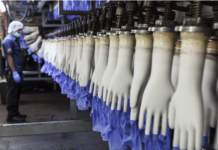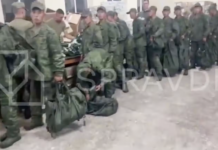KUALA LUMPUR, July 28 — The emergence of the Delta variant and the presence of many asymptomatic individuals who are not aware of their infection and are spreading the coronavirus have resulted in the spike of COVID-19 cases in Greater Klang Valley (GKV).
Commander of GKV Special Task Force Datuk Dr Chong Chee Kheong said despite the vaccination ramp-up, the number of daily new cases was still rising because the protection offered by the vaccine takes time to build.
“The vaccine effectiveness is best two weeks after the second dose, so this takes time. The Delta variant that has a high infectivity rate is also an important contributor to the spike in cases.
“In addition, we recognise, from the experience and data of nations with high vaccination rates, that infections can still occur due to the Delta variant although the hospitalisation and severe infections are significantly reduced,” he said in a statement here today.
In order to stem the pandemic in the GKV, Dr Chong who is also deputy director of Health (Public Health), said the GKV Special Task Force has put in place a number of strategic measures to optimise care services, reduce virus transmission and support the community and health staff.
Some of the key initiatives are increasing the capacity of beds, ICU care, oxygen supply, manpower deployment and use of volunteers, as well as strengthening COVID-19 Assessment Centres (CAC) by offering a virtual CAC for the asymptomatic and mildly symptomatic patients and enhanced home monitoring management.
“We hope to offer more RTK-Ag tests to health clinics and general practitioners via sales of Medical Device Authority (MDA) approved test kits to allow for wider testing,” he said.
Dr Chong also advised individuals in the Greater Klang Valley having any symptoms of COVID-19 to get tested, and once confirmed positive, to home isolate and do self-monitoring frequently through the MySejahtera application.
“We don’t want to contest hospitals with mild cases so that treatment for the severe patient can be prioritised. Our staff will contact those that are red-flagged as high risk and request them to come to the nearest CAC or hospital,” he said.
He said as they encourage more self-testing and RTK-Ag use, the number of cases was still expected to rise in the next few days.
”But do not be alarmed by this; we need to identify as many cases as possible to reduce transmission in the community. As more of these positive cases and their contacts are isolated and quarantined, cases will start to gradually come down in the weeks to come,” he said.
Once that happens, he said the testing will be re-strategised to ensure effective detection of cases for isolation and monitoring.
















